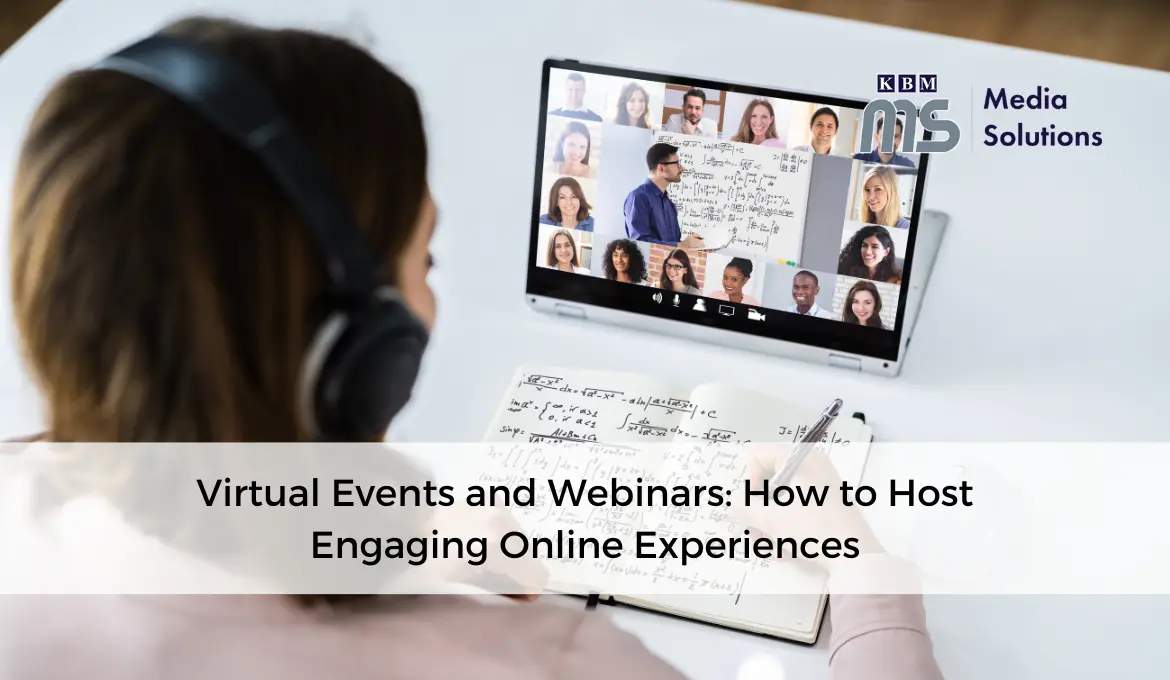Virtual Events and Webinars: How to Host Engaging Online Experiences

Posted on May 09, 2024
In recent years, virtual events and webinars have become increasingly popular as businesses and organisations adapt to the digital landscape. With the rise of remote work and the limitations on in-person gatherings due to the global pandemic, virtual events have emerged as a robust tool for engaging audiences, sharing knowledge, and fostering engagement. However, hosting a successful virtual event or webinar requires careful planning, strategic execution, and a focus on creating engaging online experiences. This blog will explore tips and best practices for hosting virtual events and webinars that captivate audiences and leave a lasting impression.
Define Your Objectives and Audience
Before planning your virtual event or webinar, defining your event goals and identifying your target audience is essential. Determine what you hope to achieve with the event, whether lead generation, brand awareness, thought leadership, or community building. Understanding your audience's needs, preferences, and pain points will help you tailor your content and format to resonate with them effectively.
Choose the Right Platform
The right platform is crucial for hosting a successful virtual event or webinar. When choosing a platform, consider audience size, interactivity features, technical capabilities, and ease of use. Popular platforms for hosting virtual events and webinars include Zoom, GoToWebinar, Microsoft Teams, and Webex.Choose a platform that meets your objectives and provides the functionality you need to deliver your audience a seamless and engaging experience.
Plan Engaging Content
The success of your virtual event or webinar hinges on the quality of your content. Plan engaging, relevant, and valuable content that addresses your audience's needs and interests. Consider incorporating different formats, such as presentations, panel discussions, Q&A sessions, and interactive polls, to keep participants engaged and actively involved throughout the event.Remember to keep your content clear, concise, informative, and visually appealing to maintain audience attention and interest.
Promote Your Event
Effective promotion is critical to driving attendance and engagement for your virtual event or webinar. Use various marketing channels, such as email marketing, social media, digital advertising, and partnerships, to promote your event and reach your target audience.Create compelling promotional materials, including teaser videos, blog posts, and social media posts, to generate excitement and encourage registrations. Offer incentives like early bird discounts or exclusive content to incentivise participation and boost attendance.
Enhance Engagement with Interactivity
Interactivity keeps participants engaged and active during your virtual event or webinar. Include interactive elements like live polls, quizzes, chat discussions, and breakout sessions to encourage participation and foster interaction among attendees.Engage with your audience in real time, address questions and comments, and create opportunities for networking and collaboration to enhance the overall attendee experience.
Provide Post-Event Resources
Maximise the value of your virtual event or webinar by providing attendees with post-event resources and follow-up materials. Share recordings, slide decks, and additional resources with participants to reinforce key learnings and enable them to revisit the content at their own pace.Host post-event discussions, surveys, or follow-up webinars to gather feedback and insights from attendees and encourage continued engagement and conversation.
Conclusion
Virtual events and webinars offer businesses and organisations a valuable opportunity to engage with audiences, share knowledge, and build relationships in the digital age. By following these tips and best practices, you can host engaging and impactful online experiences that leave a lasting impression on your audience.From defining objectives, choosing the right platform, planning engaging content, and promoting your event effectively, careful planning and strategic execution are essential for hosting successful virtual events and webinars. By prioritising audience engagement, interactivity, and post-event follow-up, you can develop memorable and meaningful experiences that drive results and help achieve your overall business objectives.